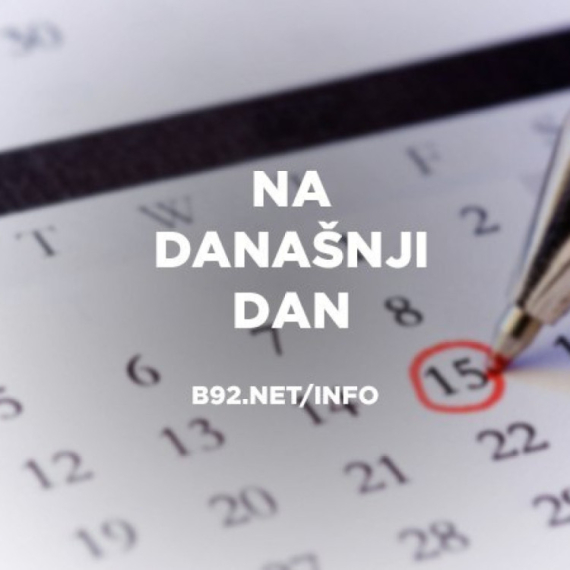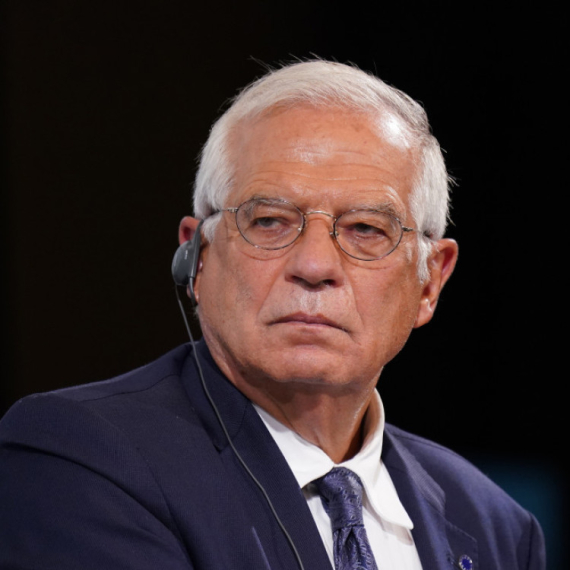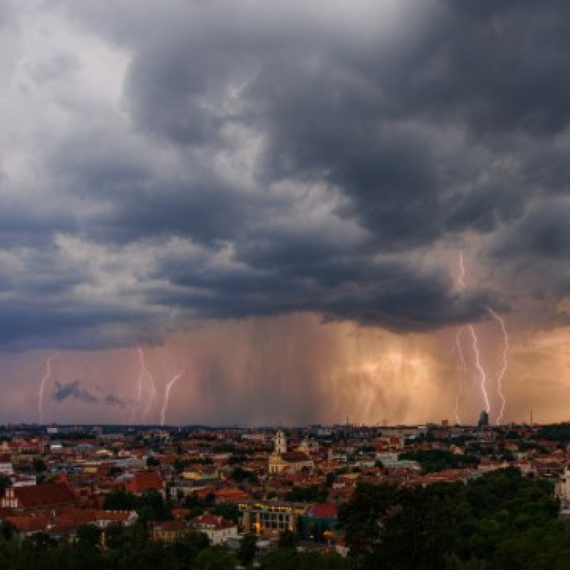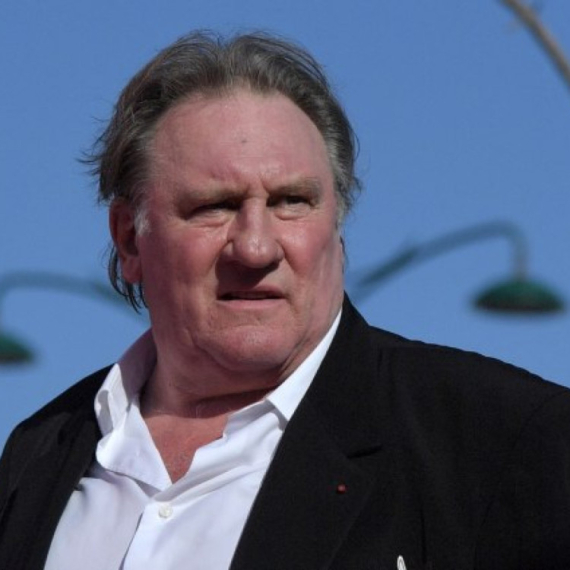Iran warns EU after "illegal" nuclear sanctions
Iran has condemned the EU's adoption of new sanctions over its controversial nuclear drive.
Tuesday, 24.06.2008.
12:23

Iran has condemned the EU's adoption of new sanctions over its controversial nuclear drive. Tehran has warned that the measures could damage fresh diplomatic efforts to solve the crisis. Iran warns EU after "illegal" nuclear sanctions The foreign ministry accused the bloc of "double standards" in imposing the sanctions just over a week after world powers presented Iran with a new package of proposals aimed at ending the standoff. "This illegal and contradictory approach of double standards -- at a time when packages are being studied -- is meaningless and is strongly denounced," Iranian foreign ministry spokesman Mohammad Ali Hosseini said in a statement. Such measures "will waste European opportunities and will not create a suitable atmosphere for solving the matter through diplomacy," he warned. The measures, approved on Monday during a meeting of EU agriculture and fisheries ministers in Luxembourg, will stop the operations of Bank Melli, Iran's largest, at its European offices in London, Hamburg and Paris. The move also adds another 20 individuals and 15 organisations to the EU's visa-ban and assets-freeze lists. The EU move, running alongside a string of UN sanctions against Iran adopted since 2006, aims at persuading Tehran to suspend its uranium enrichment activities, which the West says it fears could be used to make a nuclear weapon. But Hosseini warned that "this kind of behaviour will make the Iranian nation and government more determined in obtaining their rights." Using a policy of "carrot and stick" against Iran would have no effect, he added. EU foreign policy chief Javier Solana visited Tehran on June 14 to present a cooperation offer to Iran on behalf of the six major countries involved in the dossier -- Britain, China, France, Germany, Russia and the United States. The package offers Iran technological incentives in exchange for its suspension of the sensitive process of uranium enrichment. For its part, Iran has presented its own package which is a more all-embracing effort to solve the "world's problems", including the nuclear standoff. Tehran insists it wants nuclear energy only for a growing population whose fossil fuels will eventually run out and vehemently rejected calls to suspend enrichment for any length of time. The offer presented by the world powers says clearly that Iran must suspend enrichment before any negotiations can start but Tehran has said it is still studying the offer carefully and will give its response in due course. Iranian officials have tried to strike a hopeful tone in recent days, saying there is "common ground" between the two packages. Iran's top nuclear negotiator Saeed Jalili has also said the world powers presented an unpublicized "timetable" along with the offer about how to start talks as a prelude to full negotiations. The United States, Iran's arch enemy with which it has had no diplomatic relations for almost three decades, has never ruled out military strikes to punish what it sees as Iranian defiance. But a State Department official said on Monday that the United States is considering opening an interests section staffed by U.S. diplomats in Tehran, similar to the one it has in Cuba. The Washington Post had reported that the U.S. government is debating the move, which would create a U.S. presence in Iran without formal resumption of diplomatic relations. The Post said a decision could come in a matter of weeks.
Iran warns EU after "illegal" nuclear sanctions
The foreign ministry accused the bloc of "double standards" in imposing the sanctions just over a week after world powers presented Iran with a new package of proposals aimed at ending the standoff."This illegal and contradictory approach of double standards -- at a time when packages are being studied -- is meaningless and is strongly denounced," Iranian foreign ministry spokesman Mohammad Ali Hosseini said in a statement.
Such measures "will waste European opportunities and will not create a suitable atmosphere for solving the matter through diplomacy," he warned.
The measures, approved on Monday during a meeting of EU agriculture and fisheries ministers in Luxembourg, will stop the operations of Bank Melli, Iran's largest, at its European offices in London, Hamburg and Paris.
The move also adds another 20 individuals and 15 organisations to the EU's visa-ban and assets-freeze lists.
The EU move, running alongside a string of UN sanctions against Iran adopted since 2006, aims at persuading Tehran to suspend its uranium enrichment activities, which the West says it fears could be used to make a nuclear weapon.
But Hosseini warned that "this kind of behaviour will make the Iranian nation and government more determined in obtaining their rights."
Using a policy of "carrot and stick" against Iran would have no effect, he added.
EU foreign policy chief Javier Solana visited Tehran on June 14 to present a cooperation offer to Iran on behalf of the six major countries involved in the dossier -- Britain, China, France, Germany, Russia and the United States.
The package offers Iran technological incentives in exchange for its suspension of the sensitive process of uranium enrichment.
For its part, Iran has presented its own package which is a more all-embracing effort to solve the "world's problems", including the nuclear standoff.
Tehran insists it wants nuclear energy only for a growing population whose fossil fuels will eventually run out and vehemently rejected calls to suspend enrichment for any length of time.
The offer presented by the world powers says clearly that Iran must suspend enrichment before any negotiations can start but Tehran has said it is still studying the offer carefully and will give its response in due course.
Iranian officials have tried to strike a hopeful tone in recent days, saying there is "common ground" between the two packages.
Iran's top nuclear negotiator Saeed Jalili has also said the world powers presented an unpublicized "timetable" along with the offer about how to start talks as a prelude to full negotiations.
The United States, Iran's arch enemy with which it has had no diplomatic relations for almost three decades, has never ruled out military strikes to punish what it sees as Iranian defiance.
But a State Department official said on Monday that the United States is considering opening an interests section staffed by U.S. diplomats in Tehran, similar to the one it has in Cuba.
The Washington Post had reported that the U.S. government is debating the move, which would create a U.S. presence in Iran without formal resumption of diplomatic relations. The Post said a decision could come in a matter of weeks.























Komentari 2
Pogledaj komentare